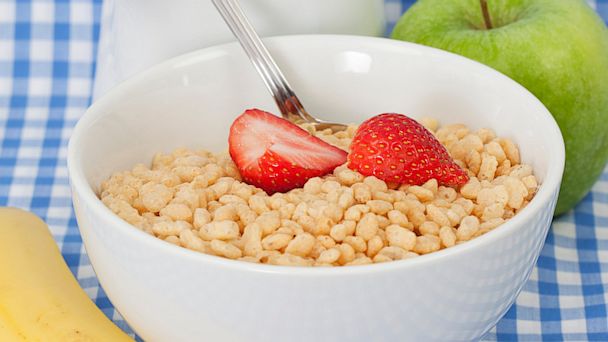Mixed Messages on the Value of Breakfast

Is breakfast the most important meal of the day? Studies are mixed. Photo credit: Getty Images.
The question of whether breakfast is the most important meal of the day has certainly been researched quite a lot lately, but the headlines on some of the studies seem to indicate the findings have been contradictory.
The most recent study, published in this week's issue of the Journal of Obesity, found that eating a big breakfast and consuming a lighter dinner can lead to significant weight loss. Researchers at Tel Aviv University in Israel, asked more than 1,600 women who were middle-aged, overweight and diabetic, to follow a weight reduction diet for three months. One group ate half their calories for breakfast, 36 percent of their calories at lunch and 14 percent of their calories at dinner. The other group ate meals with the same percentages of calories, but in reverse order.
AMA Declares Obesity a Disease
Although both groups stuck to 1,400 calories per day, the heavy breakfast eaters lost an average of almost 20 pounds while those on a dinner-centric plan lost an average of just 8 pounds. The large breakfast eaters also lost more than double the inches from around their waistline and lowered their body mass index twice as much as the big dinner eaters, and their blood profiles improved significantly in measures like cholesterol, glucose and blood fats, too.
Here in the U.S., Cornell University nutrition scientists have also been closely monitoring the breakfast table. Only their recent work has found that skipping breakfast is a good way to nix a few extra pounds.
In the Cornell study, researchers either fed or withheld breakfast from a group of volunteers, then let them eat whatever they wanted for the rest of the day. Although the breakfast skippers reported feeling hungrier as the day went on, they wound up eating 408 fewer calories on average compared to those who enjoyed a morning meal.
And then there's the new Harvard School of Public Health analysis that tracked the eating habits of more than 22,000 men over 16 years. Their findings seem to indicate that passing up breakfast led to a 27 percent higher risk of suffering a heart attack or developing heart disease.
Is Obesity Stigma the Last Acceptable Prejudice?
So what gives? Should you be scarfing down a bowl of cereal or cracking open a few eggs each morning? Or should you start your day with an empty tummy?
David Levitsky, one of the lead researchers of the Cornell study, said that the results from this group of studies aren't really comparable.
"The Israeli study looked at a fixed amount of calories either early or late in the day and subjects weren't free to eat whatever they wanted," he pointed out. "One is laboratory oriented and the other looks at what people tend to do in the real world."
As for the Harvard study, Levitsky said it's epidemiological, meaning that it reviewed a large set of data over time and made assumptions based on trends. It proves association, not causation, he said.
"We know that obese people tend to be breakfast skippers, so it could very well be that the increase in cardiovascular disease is due to a high body weight rather than not eating breakfast," he said. "You cannot make the inference that skipping breakfast has anything to do with cardio disease."
Levitsky said the bottom line is that anything that gets people to lower caloric intake will help them with weight loss and possibly lower their risk of developing type 2 diabetes. Skipping breakfast might be one strategy that can help. But the same is true of skipping lunch or dinner, reducing portion sizes and cutting back on fat.
"Any little thing a person can do to reduce calories can help with weight," he said.
James O. Hill is the director of the Center for Human Nutrition at the University of Colorado Health Sciences Center. He is also the director of the National Weight Control Registry, a research study that tracks people who have lost at least 30 pounds and kept it off for two years or more. He noted that more than 90 percent of the successful losers in the directory eat a morning meal on regular basis.
"There may well be something special about eating breakfast that helps control weight," Hill stated. "Most likely it helps control hunger later in the day."
Still, even Hill said he'd like to see more research. He suspects breakfast may be the key to weight loss for some but not as important for others. In his clinical work with the hospital's community-based weight loss programs, he has found breakfast makes the biggest impact if it is eaten within an hour of waking up.
If, based on this evidence, you decide to become a dedicated breakfast eater, you might be interested in knowing what you should eat. Unfortunately, none of these studies, not even the weight loss registry, examined food choices.
Are you a breakfast eater or skipper? Share your philosophy on breakfast in the comments section below.